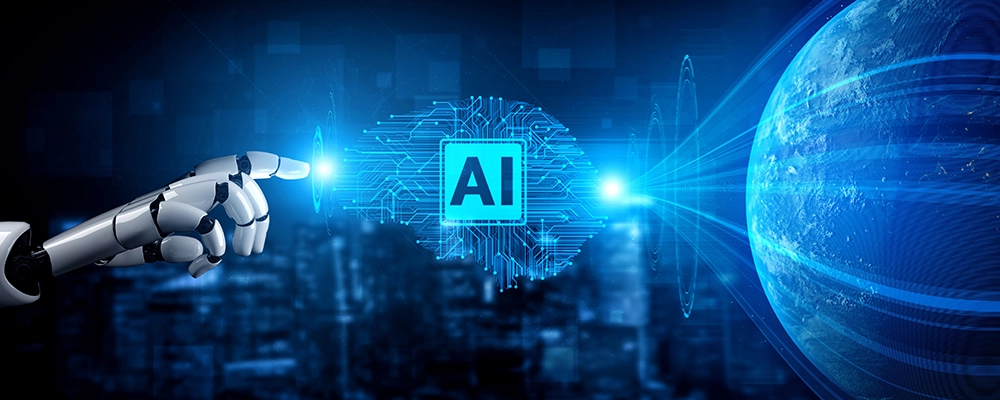–-By Manish Sharma–
In today’s world, are you always sure that the person you are talking with is the person that he says he is? It is more difficult to answer if you haven’t seen his picture, don’t know him in person, and that person is not part of your daily dose either. So how do you know that he’s who he says he is?
If you are confused with this question, hold on tight; it’s about to get more confusing.
What if you know that the person you are communicating with is not the person you intend to speak to and, in fact, he’s something else? What if he’s not even human? What if the person could just be an algorithm that gathers information from around the internet, runs it through some incredibly complex mathematical formulae, and then spits out a piece of work that you assume is created and put together by a human?
Here’s the question you should ask yourself. What if the person with whom you are interacting was a machine, and if that person or machine, so to say, did a good job and delivered the value and insight you expect, then do you even really care whether you are interacting with a human or a machine? And it will almost be impossible for anyone to identify this distinction looking at the way markets are being flooded with the most advanced piece of robotics and AI ever produced in the history of mankind.
The line between humans and machines will blur incredibly with the approaching future. This blurring of the lines between mechanical and biological is also referred to as the Turing Test.
Some of the most influential and visionary works of Alan Turing, also referred to as one of the founding fathers of computers and AI, involved his ideas and concepts of “thinking” computers and AI. He postulated that in the future (around the turn of the 21st century), the world would have machines that could play a game whereby an “interrogator” would struggle to tell the difference between man and machine. Just imagine the exceptional capability of a machine that can convince a human that it is not a machine (hence a human); it is indeed a “thinking machine” – or, as we like to call it today, artificial intelligence.
AI is rapidly being incorporated more and more into our daily lives. But before full-throttle AI consumes industry, early AI like Chatbots spreads online, finding its way into devices like our phones and computers and helping customers around the world 24 hours a day. Right now, chatbots are taking apart the customer service industry. But in a few years, they may be helping people talk through their problems in therapy and other traditionally human-only areas, say providing medical advice over the phone as a fully qualified general practitioner.
AI will soon take over our homes as well. Smart speakers like Amazon Alexa, Google Assistant, and Apple’s HomePod are just the first generation. Soon your home will talk to itself more than it talks to you. Your appliances will sort grocery shopping for you. All your creature comforts will become automated. Temperature, lighting, and entertainment are all handled by a machine. Your ironing and washing will be automated and perfected to ensure the longevity of your clothes. Even your toilet won’t be away from AI. It will become your doctor. Analyzing your body fluids and adjusting your needs where appropriate to keep you happy and healthy. Brace yourself.
You will find AI in your car. A machine smarter, faster to react, and safer than you will be behind the wheel. Already driverless cars have become a near reality. AI is set to impact the industry like GPS impacted the map-making industry. Healthcare, transportation, advertising, telecommunication, education, finance, media, and government… all will feel AI’s effects at some point. This is a revolutionary step in our evolution. It’s a revolutionary breakthrough to embrace and adapt to rather than push back against.
The machines of the future will think smarter and faster than we can even imagine and will be able to achieve a lifetime of learning and knowledge in a matter of minutes. Whether you’re ready or not, it will change everything, and you should be ready to take full advantage of the opportunities and benefits it brings.
So, as the world shifts towards accepting artificial intelligence as part and parcel of life, it has also gradually incorporated its way of influencing the customer experience battleground. Organizations are now working on loads of customer data with the help of machine learning and designing products and services in the way their customers want them to be. With in-house expertise and technology capabilities, QDegrees enables its clients to capture customer opinions, feedback, and ratings through AI-based NPS solutions. This platform is a foolproof way to understand what your customers want to say and design strategies accordingly.






